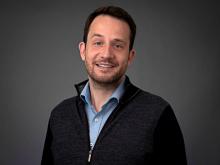Martin Reuter, PhD
Professional Information
Assistant Professor of Radiology, Harvard Medical School
Assistant Professor of Neurology, Harvard Medical School
Assistant in Neuroscience, Massachusetts General Hospital
PhD , Leibniz University Hanover, Germany, 2005
Contact
Mailing Address
Bldg 149, Room 2301
13th Street
Charlestown, MA 02129 USA
Additional Information
Biosketch
Dr. Reuter is Assistant Professor of Radiology and Assistant Professor of Neurology at Harvard Medical School and the Massachusetts General Hospital (Assistant in Neuroscience, Dept. of Radiology and Dept. of Neurology). He is affiliated to the Martinos Center for Biomedical Imaging, the MIT Computer Science and Artificial Intelligence Lab and the MIT Department of Mechanical Engineering. Dr. Reuter's recent research focuses on deep learning methods for medical imaging. In the past he contributed methods for unbiased longitudinal image processing of brain MRI and structural shape analysis for computer-aided diagnosis and prognosis. His methods are widely employed as part of the FreeSurfer software package to study neurodegeneration and assess disease modifying therapies, e.g. by the Alzheimer's Disease Neuroimaging Initiative. During his postoctoral research at MIT (2006-08), supported by a Feodor-Lynen fellowship of the Alexander von Humboldt Foundation, he contributed novel methods for non-rigid shape analysis and processing, and received the most cited paper award 2009 of the Computer-Aided Design journal for his manuscript on spectral shape analysis. In 2006, he has been awarded the Leibniz prize for outstanding scientific accomplishments by the University Hanover, Germany, where he obtained his Ph.D. in the area of computational and differential geometry from the department of electrical engineering and computer science with summa cum laude in 2005. He obtained a 'Diplom' (M.Sc.) in mathematics with a second major in computer science and a minor in business informatics from the Leibniz University of Hanover in 2001. His research interests include deep learning for medical imaging, computational neuroimaging, computational geometry and topology, computer vision and graphics.



